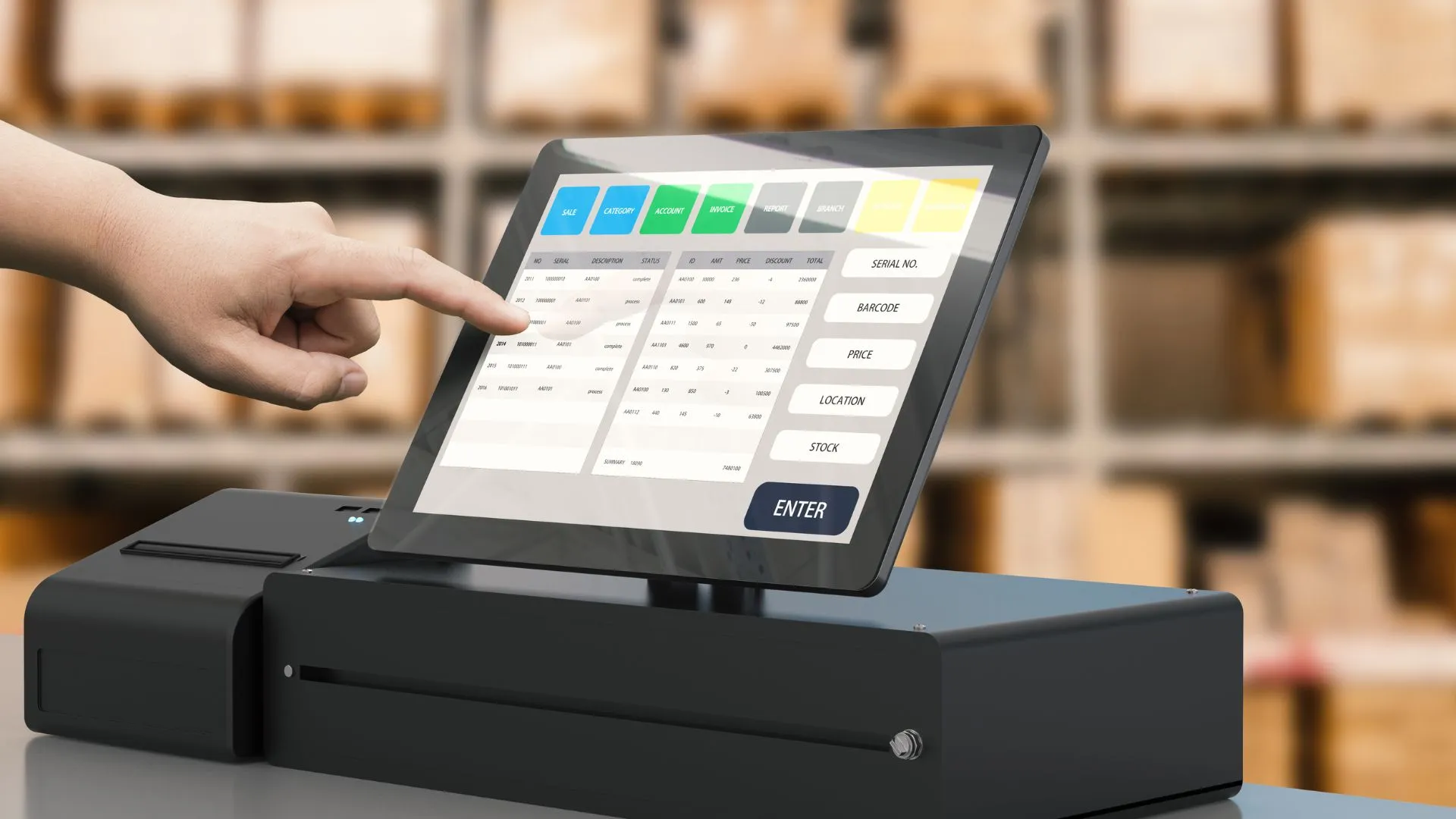How E-Commerce Businesses Can Leverage AI Technology Solutions (8 Examples)
Artificial Intelligence (AI) is rapidly transitioning from a buzzword into a potent tool that’s proving vital for businesses of all shapes and sizes.
Recent studies show that implementing AI in e-commerce can increase profitability by 59% by 2035. Other studies have shown that the AI in e-commerce market is projected to grow from $2.3 billion in 2020 to $10 billion by 2025.
As AI technology continues to evolve, it brings a host of innovative tools that are revolutionizing how online businesses operate, compete, and grow. The e-commerce sector is among the industries significantly impacted by AI, with AI-driven tools offering various benefits.
From automating routine tasks like fraud detection and customer service interactions to providing round-the-clock support through AI-powered chatbots and voice bots, AI is streamlining operations and freeing up resources for more critical initiatives. This integration boosts efficiency and significantly enhances customer satisfaction and loyalty.
In this blog post, we’ll explore eight critical areas where AI can be deployed in your e-commerce platform, highlighting how these innovations can transform your business and give you a competitive edge in the market.
Here’s a deep dive into the eight best areas AI can be deployed in your e-commerce business:
1. AI-Powered E-Commerce Customer Service
One of the pivotal areas that AI is transforming is customer service. A study by Grand View Research anticipates the global chatbot market to reach a staggering $9.4 billion by 2024, growing at a CAGR of 24.3%. This figure underscores the vital role chatbots play in customer service and their potential for remarkable expansion in the years to come.
AI-powered chatbots and voicebots can deliver round-the-clock customer service. They are programmed to answer frequently asked questions, assist with orders, provide detailed information about products and services, support service requests and claims, accept damage reports, support the conclusion of a purchase-sale agreement, and even replace traditional IVRs by redirecting calls to the right person or providing instant answers.
They understand customer intent, remember the context of ongoing conversations, and dynamically answer a variety of customer queries. These bots can collect a plethora of necessary information to accept an order or request, guide customers through routine processes, and help them complete a case in mere minutes. They can forward certain calls to a hotline consultant or send collected information to the appropriate system through their integration with external systems. Implementing such solutions significantly boosts customer satisfaction and loyalty.
2. Using AI For Personalized Product Recommendations
AI’s potential to enhance personalized product recommendations in e-commerce is noteworthy. Machine learning algorithms allow personalizing product recommendations based on a customer’s past purchases, browsing history, and other personalized data.
The implementation of an AI-driven personalized product recommendation system brings numerous benefits. It helps increase sales as customers are more likely to buy products tailored to their preferences. It also enhances customer engagement and loyalty, given that customers appreciate the personalized experience.
A study by Accenture reveals that e-commerce companies that employ AI-powered personalized product recommendations can witness an average increase in sales of 30%. Similarly, a study by Forrester Research found that personalization could lead to up to a 15% increase in sales.
3. Streamlining E-Commerce Inventory Management With AI
AI can streamline e-commerce inventory management by employing machine learning algorithms that optimize inventory levels. These algorithms analyze data such as sales history, customer demand, and supplier lead times to determine the optimal inventory levels for each product. This data-driven approach reduces the risk of both understocking and overstocking.
For example, AI algorithms can detect patterns in buying behavior and predict which products are likely to be in high demand during specific periods. This enables e-commerce businesses to prepare for peak shopping seasons, such as Black Friday or the holiday season, ensuring that popular items are always in stock. Additionally, AI can help identify slow-moving inventory, allowing businesses to implement strategic discounts or promotions to clear out excess stock.
According to a study by Accenture, AI-powered inventory management can help retailers trim down their inventory costs by 10-15%. A study by IDC also predicts that by 2023, a whopping 80% of companies will be using AI to support their inventory management process.
The benefits of AI-powered inventory management extend beyond just cost savings. By maintaining optimal inventory levels, businesses can improve customer satisfaction through better product availability and faster delivery times. Customers are more likely to return to an online store that consistently meets their expectations for product availability and timely delivery.
4. Enhancing Fraud Detection Using AI Tools
AI also has a crucial role in bolstering e-commerce fraud detection. Machine learning algorithms can analyze a wide array of customer data to detect patterns of fraudulent behavior. By analyzing customer demographics, purchase history, and shipping information, AI can identify potential fraud and protect your business from substantial financial losses. Additionally, AI can help improve customer satisfaction and loyalty as customers feel safer and more protected with their transactions.
Fraud detection systems powered by AI continuously learn and adapt to new fraud tactics, making them more effective over time. They can process large volumes of data in real-time, allowing them to identify suspicious activity as it happens. This immediate response is critical in preventing fraudulent transactions before they can cause significant harm.
AI can also employ advanced techniques such as anomaly detection, where the system identifies deviations from normal behavior that could indicate fraud. For example, if a customer’s purchasing pattern suddenly changes—such as making unusually large purchases or buying high-ticket items they’ve never bought before—the AI system can flag this activity for further investigation.
Furthermore, AI can cross-reference data from multiple sources, such as device fingerprints, IP addresses, and geolocation, to provide a more comprehensive fraud detection solution. This multi-layered approach significantly enhances the accuracy of fraud detection, reducing the likelihood of false positives that can frustrate legitimate customers.
According to a study by Juniper Research, the cost of e-commerce fraud is expected to soar to $71 billion in 2023. However, a study by Accenture reveals that AI-powered fraud detection can reduce the number of false positives by up to 30%, thus significantly improving the efficiency of the process. This reduction in false positives not only saves time and resources but also ensures a smoother shopping experience for customers, enhancing their trust and loyalty.
5. Amplifying E-Commerce Price Optimization
AI is a powerful tool that e-commerce companies can leverage to optimize their marketing strategies. By analyzing vast amounts of customer data, AI can provide insights into customer behavior, preferences, and buying patterns. This information can then be used to create highly targeted and personalized marketing campaigns that resonate with customers.
AI-driven price optimization leverages dynamic pricing strategies, where prices are adjusted based on real-time supply and demand conditions. This approach ensures that prices are always competitive and aligned with current market conditions, helping businesses maximize their revenue. For instance, during periods of high demand, prices can be increased to maximize profit margins, while during low demand, prices can be reduced to stimulate sales.
To enhance the price optimization process, natural language processing (NLP) can analyze customer reviews and social media posts to provide insights into customer preferences and expectations. This valuable information can inform pricing decisions and strategies, contributing to increased sales and profits.
AI can also help identify price sensitivity segments within the customer base, allowing businesses to implement personalized pricing strategies. For example, loyal customers might be offered exclusive discounts, while first-time buyers could be targeted with special introductory prices. These personalized pricing strategies can boost conversion rates and foster long-term customer relationships.
6. Driving Marketing Automation By Using AI Tools In E-Commerce
AI is a powerful tool that e-commerce companies can leverage to optimize their marketing strategies. By analyzing vast amounts of customer data, AI can provide insights into customer behavior, preferences, and buying patterns. This information can then be used to create highly targeted and personalized marketing campaigns that resonate with customers.
AI-driven marketing automation can segment customers based on various attributes such as demographics, purchase history, and online behavior.
This segmentation allows businesses to tailor their marketing messages to specific customer groups, increasing the relevance and effectiveness of their campaigns. For instance, personalized email campaigns can be crafted to target customers with product recommendations based on their past purchases, significantly enhancing engagement and conversion rates.
AI can also be used to automate repetitive and time-consuming tasks, such as email marketing and social media posting. This automation allows companies to focus on strategic initiatives and improve their marketing ROI.
Moreover, AI can analyze the performance of marketing campaigns and provide insights into what is working and what isn’t. These insights can be used to optimize future campaigns and improve overall marketing effectiveness. For example, AI can track key performance indicators (KPIs) such as click-through rates, conversion rates, and customer engagement, providing detailed reports that help marketers refine their strategies.
7. AI-Enhanced Customer Experience Personalization
By analyzing data from customer behavior, purchase history, and preferences, AI systems can tailor every aspect of the shopping journey to individual customers, creating a more engaging and satisfying experience.
AI can understand browsing patterns and purchase history to recommend products that are likely to interest each customer. This level of personalization not only helps increase sales but also enhances customer loyalty, as shoppers appreciate the tailored recommendations. Dynamic website customization based on individual user behavior shows personalized content, deals, and product suggestions, making the shopping experience more relevant and enjoyable.
AI segments customers into distinct groups based on their behavior, demographics, and purchase history. This segmentation allows businesses to create personalized email marketing campaigns with product recommendations and special offers tailored to each customer segment. Such targeted marketing efforts are proven to be more effective, with personalized emails powered by AI increasing transaction rates by six times.
AI-driven retargeting ads display relevant products to customers based on their browsing history, increasing the chances of conversion. These ads remind customers of products they have shown interest in, encouraging them to return and complete their purchase.
According to PwC, 70% of US consumers are open to AI interventions in their shopping experience, indicating a strong acceptance and demand for these technologies.
8. Utilizing AI For Predictive Analytics in E-Commerce
Predictive analytics, powered by AI, allows e-commerce businesses to anticipate customer needs and market trends, providing a significant competitive advantage. By analyzing vast amounts of data, AI can make accurate predictions that help businesses stay ahead of the curve.
AI is able to review historical sales data, market trends, and seasonal patterns to predict future sales volumes. This helps businesses plan inventory, staffing, and marketing efforts more effectively. Accurate sales forecasts enable proactive decision-making, allowing companies to capitalize on market opportunities and mitigate potential risks. According to McKinsey, predictive analytics can increase sales by 20% in e-commerce.
AI models predict customer behavior, such as the likelihood to purchase, churn probability, and customer lifetime value. Businesses can implement targeted retention strategies to reduce churn and increase customer loyalty based on these predictions. Personalized marketing strategies are informed by predictions about what products customers are likely to buy next, enhancing customer engagement and satisfaction.
Predictive models identify high-value customers and tailor marketing efforts to maximize their lifetime value. AI helps determine the optimal timing and frequency of marketing communications to maintain customer engagement.
Businesses can design loyalty programs and incentives based on insights from predictive analytics, boosting long-term customer relationships. According to Accenture, AI can increase business productivity by 40%, highlighting its impact on improving operational efficiency and customer value.
Start Leveraging AI For Your E-Commerce Business
AI has paved the way for transformative innovations in the e-commerce industry. By harnessing the vast potential of AI, businesses can gain a competitive edge, drive growth, and elevate the customer experience to new heights. From enhancing customer service and personalizing product recommendations to streamlining inventory management and optimizing pricing strategies, AI offers a plethora of benefits that can revolutionize e-commerce operations.
If you want to begin implementing AI solutions in your e-commerce business but don’t know where to start, we may be able to help. Get in touch with the good people at Euvic with a completely free, no-commitment consultation. We’ll help you create a game plan for your end-to-end AI-powered software solutions. Schedule your free consultation now.
Euvic is a competitive advantage for us. The technical excellence that Euvic has brought is not easily matched and their support has become integral to our growth strategy.

Euvic is a competitive advantage for us. The technical excellence that Euvic has brought is not easily matched and their support has become integral to our growth strategy.

Euvic is a competitive advantage for us. The technical excellence that Euvic has brought is not easily matched and their support has become integral to our growth strategy.

Talk to Your Local Euvic Team

















.webp)







































































